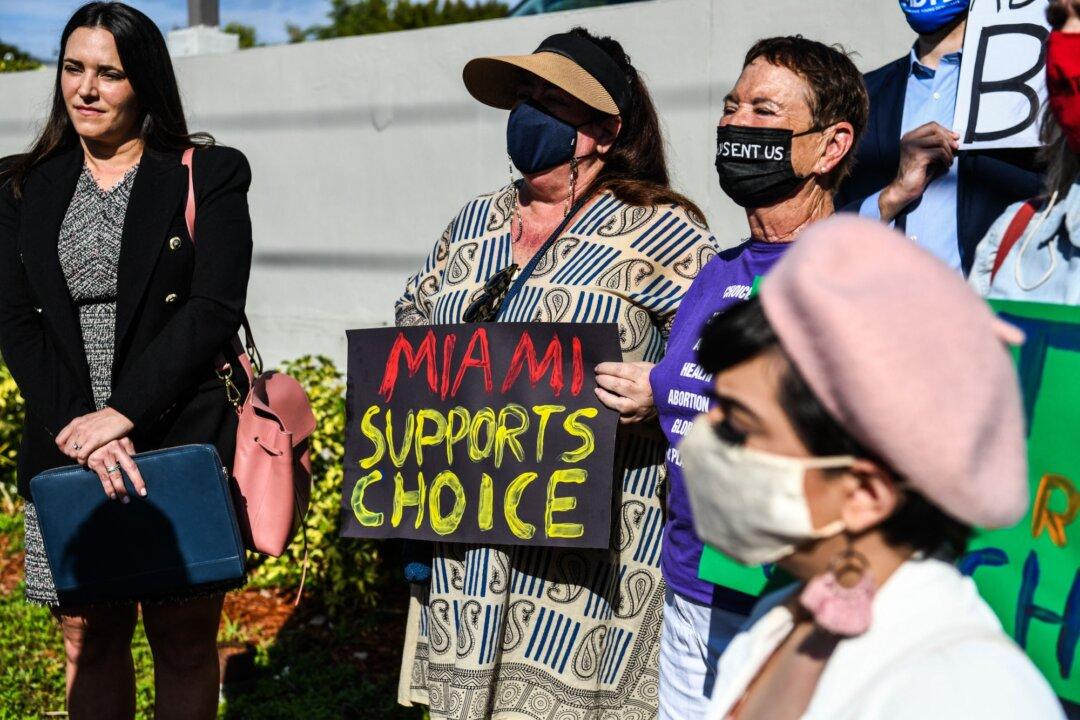PUNTA GORDA, Florida–Two minutes after midnight, on Feb. 17, the Florida House voted to advance legislation that would ban most abortions after 15 weeks of pregnancy, with no exceptions for rape and incest. The measure is headed to the Florida Senate and, if approved, will land on the desk of Republican Gov. Ron DeSantis, who has signaled that he would sign.
The measure was approved 78–39 following five hours of sometimes emotional debate, and after protesters forced a brief recess with chants of “my body, my choice” echoing off the gallery walls as they were escorted away.




